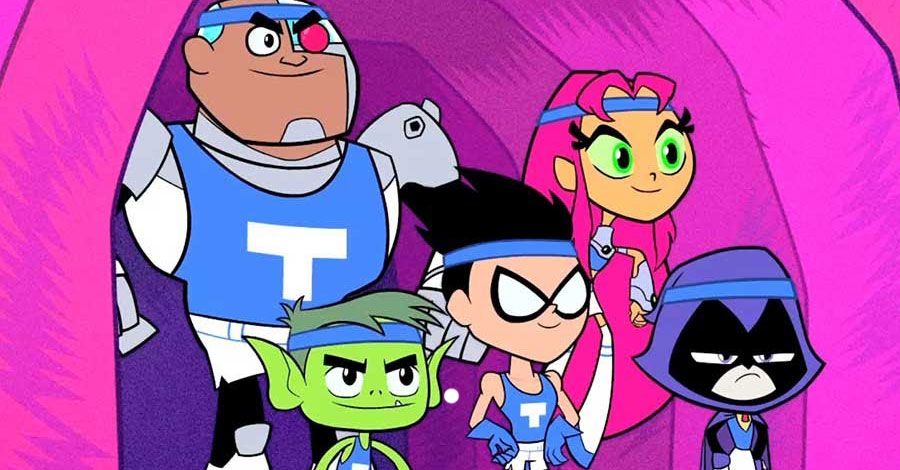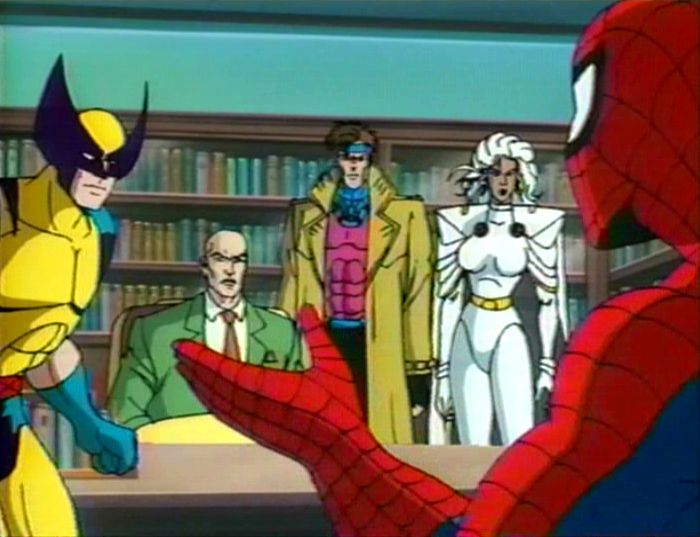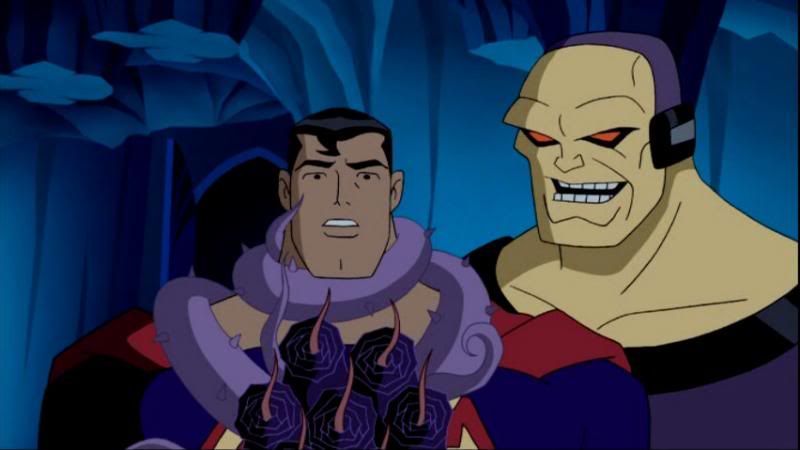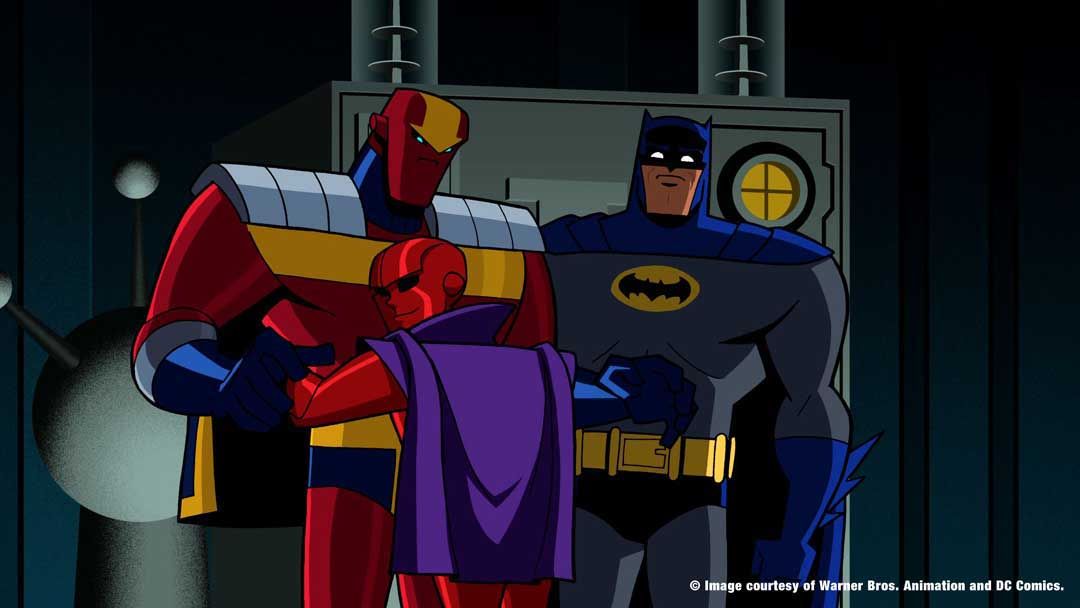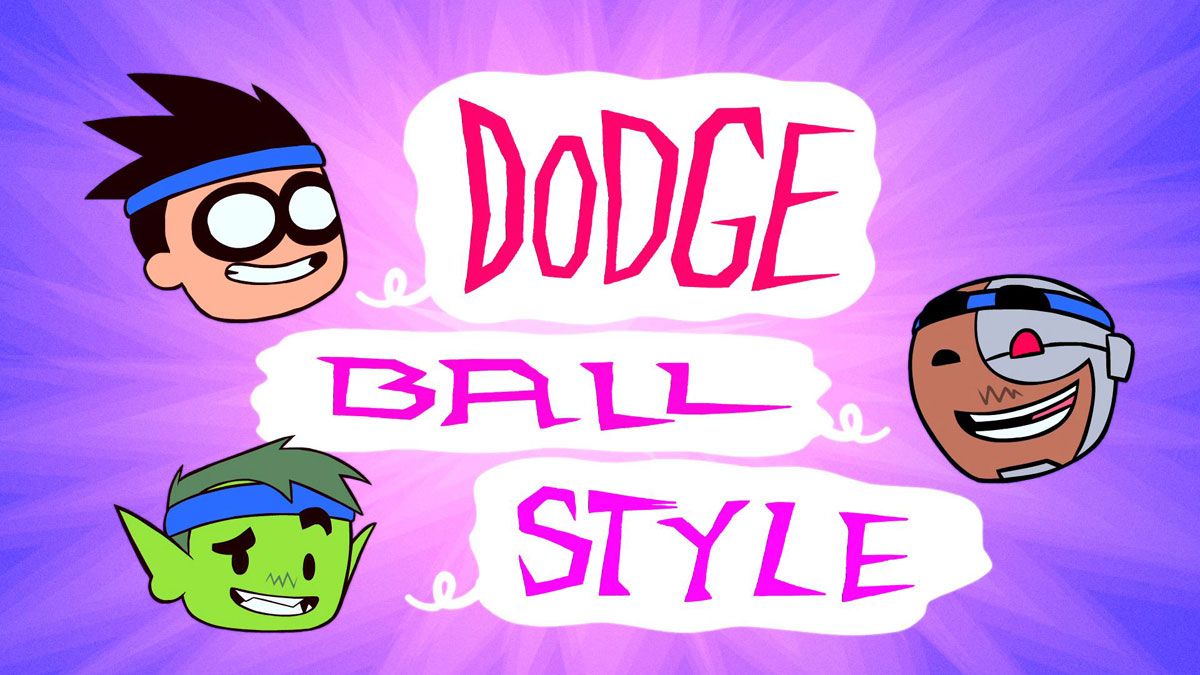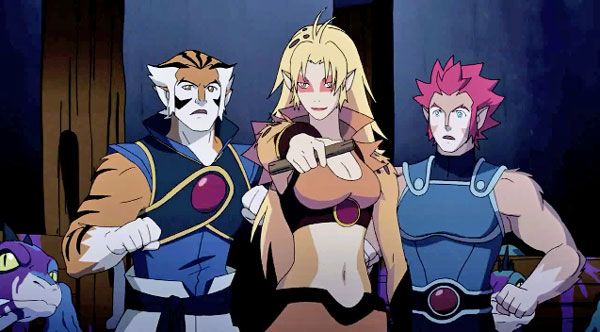For comic fans, the name JM DeMatteis brings to mind comics full of strong character work thanks to stories like "Kraven's Last Hunt," the "Bwa ha ha!" stylings of "Justice League International" and modern titles like "Justice League Dark."
But over the past 20 years, the writer has also left his mark on the world of television animation -- from '80s syndicated series through becoming a key utility player for Warner Bros. Animation on series like "Justice League Unlimited" and current Cartoon Network hit "Teen Titans Go!" And while comic fans may not realize the full extent of DeMatteis' animated life, the writer says that in the end, it's all storytelling to him.
With new episodes of "Teen Titans Go!" currently racking up ratings on cable, CBR News spoke with DeMatteis about his years in TV. The writer explains how he followed a number of comics scribes into the world of animation, expresses his love of the medium, shares behind the scenes experiences writing classics like "For The Man Who Has Everything" and what it's like to both entertain and perhaps traumatize 8-year-old audiences.
CBR News: I think the idea of comic writers working in animation -- I'm not sure we'd call it "moonlighting" -- has been part of the business for years. Marv Wolfman and Steve Gerber wrote for animation in the '80s, and they were hardly alone. How do you view your animation work in terms of your writing life? An extension of your work in mainstream comics? A different variation on it?
JM DeMatteis: I've never seen myself as "just" a comic book writer: I've written for live-action television, as well as animation; written novels and screenplays. Each is very different and yet each is part of a continuum. The form of expression varies -- an animation script is not a novel is not a comic book script -- but at the heart of it is the art of storytelling; and the essence of story remains the same, no matter the medium.
You worked on some animation and live action TV writing in the '80s and early '90s, though I expect that the business was much different then than it is now. Still, what kinds of skills did you gain in the early days of working for TV that kept you interested in that kind of work?
It was a challenge, learning the form of TV writing, but it's a form I took to very quickly. That said, the skills didn't keep me interested, the medium did. TV has the capacity to reach millions and millions of people, way beyond what comics reach even on their very best days. And, for such a mass medium, television is also incredibly intimate, it creeps into our homes and hearts. 

The very first television script I sold -- and I owe that to the kindness and support of Alan Brennert -- was for the '80s incarnation of "The Twilight Zone": an episode called "The Girl I Married." First animation script I ever wrote was shortly after that, for "The Real Ghostbusters." The story editor on that show was a guy named J. Michael Straczynski. I wonder whatever happened to him?
One of the earliest animation gigs you had that a lot of fans will recall is writing part of the "Mutant Agenda" crossover between the '90s "Spider-Man" and "X-Men" cartoons. Today, cross-media coordination on properties like that is a standard for Marvel and DC, but at the time, crossing those shows and even doing a newspaper comic strip tie-in was a rare thing. How did that job come about, and what's your memory of the writing process?
Honestly, my contribution to that episode was minor. I'd originally been asked to write for the "Spider-Man" animated series when Marty Pasko -- a great guy and great talent and one of the very first comic book writers to make the jump to TV writing -- was onboard as producer. He left and was replaced by another very nice, and very talented, man, John Semper, who invited me to contribute to the show. (My old friend Stan Berkowitz, who I met when he was producing the live action "Superboy" series, was also on staff.) As I recall, my daughter had just been born, I was very (happily) distracted by having a new baby -- and there were some complications with the episode and the very crossover nature you mention. I ended up just working on the story, not writing the teleplay.
Of course, the brunt of your animation work has come over the past decade writing for Warner Bros. Dwayne McDuffie was story editor on "Justice League Unlimited" when you got recruited to work on that show. Was it him who got you working on the animation side of things on a more full-time basis?
No, it was Stan Berkowitz. As noted, I knew Stan when he was producing "Superboy." I wrote five episodes of the show and did a brief stint on staff, as well. Stan was the guy who opened the door at "JLU" -- and I'm very grateful. What a great show -- one of the best iterations of the League in any medium, ever -- and what a great gig. Stan and Dwayne were my point men on the show, almost all of my interactions were with them. Dwayne -- who I later worked for on "Ben 10" -- was a terrific guy. Hugely talented and still sorely missed.
As far as starting points go, adapting a story like "For The Man Who Has Everything" as your first job on a show seems a bit of a daunting task. What was the process like for you in adapting the famous Alan Moore/Dave Gibbons story to the world of "JLU"?
At the time, I'd never read the comic, wasn't aware of its reputation, and so I wasn't daunted at all. When I did read "For the Man -- " I saw that it was a terrific story, with wonderful emotional texture, and did my best to do it justice. As with all television, I had lots of input from Stan, Dwayne and the other staff guys, who were always wonderful to collaborate with.
On that show, you had the unique possession of writing both standalone episodes like that one and also ones that tied to the shows long-running plotlines like "Ultimatum" and "Shadow of the Hawk." What's your take on the overall storytelling challenges of the story editor/freelancer dynamic as you learned it in that experience and across your animation work?
On "JLU," the stories were generated by the staff guys -- the shows I worked on were primarily by Stan and Dwayne -- and my job was to develop their outlines into full teleplays. That allowed the staffers to remain in control of their material -- especially since they did, as you mention, weave long-running plot lines through the individual episodes -- but still allowed me plenty of room to play with the characters and story elements and bring my own personality to bear on the work. I can't say enough good things about the "JLU" experience: I was treated with respect, got to work on wonderful material with wonderful collaborators and -- hey -- they paid me, too. The biggest challenge I recall was on one of the episodes you mention, "Ultimatum," because there were so many characters in it, just dozens of heroes, and a lot of action to choreograph. A story like "For the Man --" was more intimate, with a much smaller cast. But "Ultimatum" was a fun challenge and I think the episode turned out very well.
One of the things I've really enjoyed about my years in animation is the collaborative process. I've had the pleasure of working with smart, talented people like Stan and Dwayne, Michael Jelenic, James Tucker, Alan Burnett, Mike Carlin, Genndy Tartakovsky, Amy Wolfram and many more. I love the give and take, I love being part of the team. And, despite what the credits may say on the screen, in TV, it's always a team effort.
I've gotten the impression that you're a bit of an odd man out in animation in that you live in New York instead of LA. That's a rare thing, isn't it? Has your location at all impacted how this part of your career has developed?
Yes, it has. There have been a number of times, over the years, when I've almost (but not quite) moved to L.A. -- a city I love -- but, as the song says, "Life is what happens to you when you're busy making other plans." I think my TV and movie-writing career would have played differently had I been out there, but the truth is, I've worked on so many fun projects, and done it from the comfort of my home in upstate New York, that I wouldn't change a thing.
Since "JLU," you've been a utility player on a lot of WB shows, from "Brave & The Bold" to "Thundercats." Do you feel like you've got a particular kind of story you gravitate towards while working as a freelancer?
My job as a freelancer on these shows is two-fold: 1) to execute the vision of the producers. It's not my job to come in with my vision of what, say, "Thundercats" should be. It's their show, they're planning the season-long arcs, they're developing the characters. I want to do my best to give them what they want. 2) Along with that -- and this may sound contradictory -- I want to imprint the story with as much of myself as I can. To infuse the characters and their world with my own particular voice. The more of my own POV that I can bring to the table, while never violating the producers' vision for the show, the better the work will be. It's an interesting balance. 


As for the kinds of stories I gravitate towards -- well, it's more what stories gravitate toward me. I think producers know that I can deliver stories that have some psychological and emotional heft to them, which is why, even on a light-hearted series like "Brave and the Bold," I was assigned some serious fare like the Doom Patrol episode and the story where Red Tornado, essentially, performed a mercy killing on his robotic son. (How many eight-year-olds were traumatized by that one?)
I'd imagine that one major difference between comics writing and animation is that in the latter, you may have to keep your audience in mind a bit more -Â both due to the age of kids watching many of those shows and the standards rules that accompany broadcast TV. How does that change your approach, if at all?
For me, it doesn't really change anything. My loyalty is to the story, just as it is in comics. Story is everything and, even if the format of storytelling is different, the essential elements are the same. A good story is a good story, whether it's a comic book, a TV script, a novel, whatever. Of course I know that I'm not going to have sex and profanity in a script for a Saturday morning cartoon -- but we've got rules and regs to follow in mainstream comics, as well. Nothing wrong with limitations, working within specific parameters. In fact, those limitations often force you to think outside the box. 

If I want to tell a story in exactly the way I want to, with no limits, then I can do a creator-owned series, or write a novel or a spec screenplay. But, honestly, I'm not thinking about any of that when I'm writing for these shows: I'm just trying to craft as solid a story as I possibly can.
Lately, you've been doing a lot of work on the "Teen Titans Go!" series including the super fun "Artful Dodgers" dodgeball episode. This show obviously allows you to work your comedy chops in a much more direct way than maybe any other work you've done before. What's the experience of working on a show like that like compared to the more action-oriented fare?
It's very different and it took me some time to wrap my head around it. It's a very specific show with a very specific sensibility. I've written three episodes so far and, in some ways, the third one was the first time I felt really comfortable in that world. With new shows, you're often writing episodes before any have been produced and you're not exactly sure what the tone and feel of the series will be. Then you actually see a produced episode and something clicks. 

I remember having a similar experience when I wrote for a wonderful, but sadly short-lived, series called "Sym-Bionic Titan." I didn't really get the show, then I saw the first episodes and had my "A-ha!" moment. Same with "Titans." Michael Jelenic (one of my favorite guys in the business. He was also a producer on two other shows I've written for: "Legion of Super-Heroes" and "Brave and the Bold") and his team have done a fantastic job with "TTG." It's smart and funny and wonderfully goofy, all at the same time.
Like I said, you've been doing this for around a decade now and mostly serving as a freelancer on various shows. Do you have any interest in creating or leading your own series at some point?
Absolutely. I'm developing a couple of series ideas right now. Time will tell if they manifest or vanish in the Hollywood mists.
In the meantime, I've got a two big animation projects in the works that CBR readers will, I hope, be very interested in. Unfortunately, I can't say a word about either of them. Soon, I hope!

